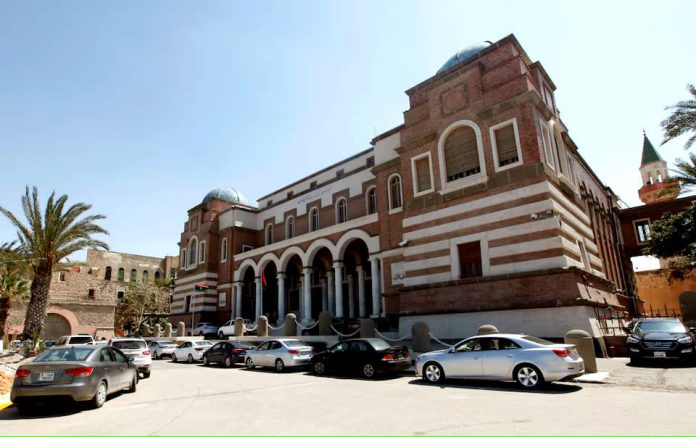In a move that could help end a crisis which has slashed the country’s oil output, Libya’s eastern-based parliament agreed on Monday to approve the nomination of Naji Mohamed Issa Belqasem as governor of the central bank.
In a televised session, the House of Representatives (HoR) also approved Mari Muftah Rahil Barrasi as his deputy.
The approvals could remove the main political obstacle to solving a crisis over control of the Central Bank of Libya (CBL) and oil revenues that have sharply reduced Libya’s oil production and exports.
Belqasem was previously the central bank’s director of banking and monetary control, while Barrasi was appointed as governor deputy in 2023. The two men were nominated in recent U.N.-facilitated talks.
The second deputy speaker, Musbah Doma, said the session’s 108 attendees voted unanimously by raising their hands after Doma read out the names of the two nominees.
“The board of directors (of the Central Bank) will be formed within 10 days,” Doma added.
The crisis began when the head of the Tripoli-based Presidential Council, Mohamed al-Menfi, moved in August to replace veteran central bank Governor Sadiq al-Kabir, which led eastern factions to order a halt of oil flows across Libyan oilfields in protest.
Nearly all of Libya’s oilfields are in the east, which is under the control of military commander Khalifa Haftar, who leads the Libyan National Army.
Libya’s National Oil Corporation said on Aug. 28 that oil production had dropped by more than half of typical levels. It has not made public any new production figures since then.
Libya’s oil output has been disrupted repeatedly in the chaotic decade since the country was divided in 2014 between two administrations in its east and west following the NATO-backed uprising that toppled Muammar Gaddafi in 2011.
According to an agreement signed last week Thursday by delegates of legislative bodies at the headquarters of the United Nations mission in Libya (UNSMIL), the governor and his deputy would be approved within one week and the board of directors within 10 days from approving the governor.
The legislative bodies are the HoR in Benghazi and the High State Council (HSC) in Tripoli.
The leadership of the HSC has been contested since Aug. 6, when an election among its members came down to a single vote between former head Khaled al-Meshri and his successor Mohammed Takala, who took office a year ago.
But both Takala and Meshri said they had informed the UNSMIL acting head, Stephanie Koury, of their approval of the two nominees.
“The Central Bank crisis was created by the Presidential Council and wisely addressed by the House of Representatives and the State Council, taking into account the interest of nation and citizen,” HoR speaker Aguila Saleh said.











